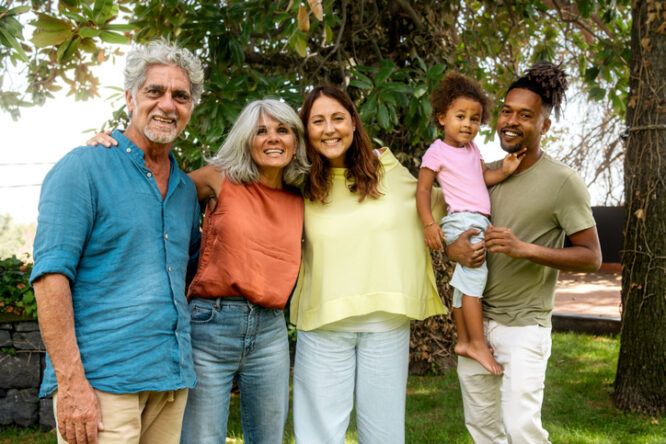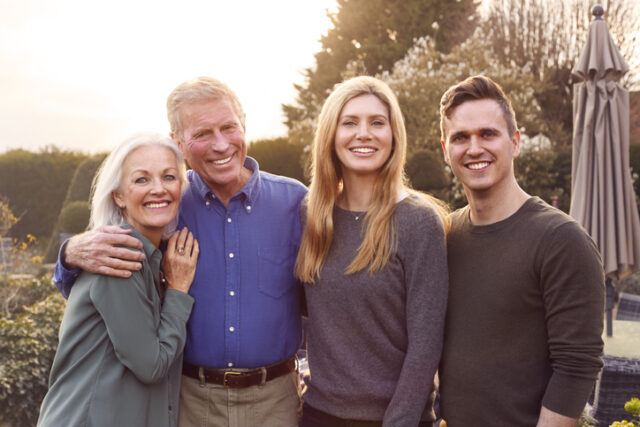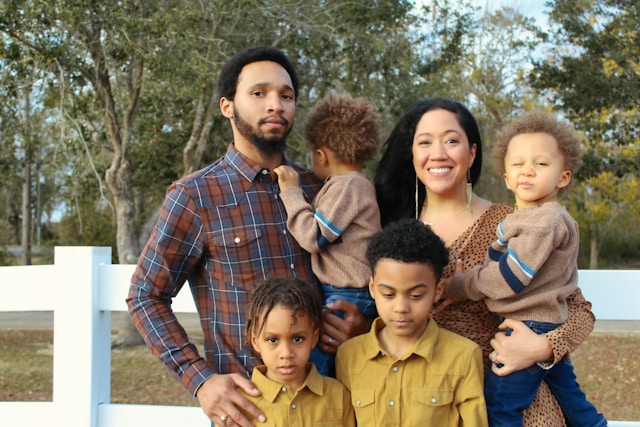There’s no single roadmap for being a great parent, of course.

That being said, some habits show up again and again in the homes where kids feel safe, supported, and truly seen. That doesn’t mean you have to be perfect, throwing Pinterest-worthy birthday parties, or never raising your voice. Instead, it’s all about the quiet, consistent things that help children feel grounded, no matter what life throws at them. If you’re wondering what sets great parents apart, these little habits make a big difference.
1. They admit when they’re wrong.

Great parents know they’re not always going to get it right. Instead of pretending otherwise, they own their mistakes and say sorry when it’s needed. It shows their kids that adults mess up too, and that accountability is more important than being perfect.
It’s a deceptively simple habit that builds trust. It teaches kids that they don’t have to be afraid of getting things wrong, and that relationships grow stronger when we’re honest and humble. Plus, it models what real emotional maturity looks like in everyday life.
2. They set boundaries without making it a power trip.

Rules and limits are part of parenting, but great parents don’t use them as a way to dominate or control. Instead, they set clear, consistent boundaries with kindness and explanation. The message is: “I care about you, and this is how we keep things safe and fair.”
That balance of firmness and empathy gives kids a sense of structure without making them feel small. It helps them understand that boundaries aren’t punishments; they’re a form of love in action.
3. They pay attention to the little stuff.

It’s not always about the big milestones. Great parents tune into the small details—the offhand comments, the extra-long hugs, the quiet moods that don’t come with an explanation. They’re present enough to notice what their kids aren’t always saying out loud.
Doing so builds emotional safety. When a child feels truly seen in the everyday moments, they’re more likely to open up when the big stuff comes along. That kind of presence can’t be forced, but it can be practised.
4. They say “I love you” without making it conditional.

Some kids grow up thinking love is something you earn with good grades or good behaviour. Great parents make it clear that love is constant; it doesn’t disappear when someone messes up, has a bad day, or pushes back.
That kind of steady reassurance gives children the freedom to be themselves. It teaches them that their worth isn’t tied to performance, and that emotional safety doesn’t have to be earned over and over again.
5. They keep their promises (or explain when they can’t).

Kids remember the little things you said you’d do. Great parents do their best to follow through; if something changes, they explain why. They’re not perfect, but they do insist on showing respect for their child’s trust.
When you keep your word, you teach your child that what you say matters. And when you can’t, being honest about it models integrity. Either way, they learn how to build reliable, honest relationships.
6. They let their kids see them being human.

Great parents don’t pretend to have it all together. They let their children see that adults have feelings too—frustration, sadness, worry—and they handle those emotions in healthy ways. It helps take the mystery out of what it means to grow up.
That makes space for empathy. When kids understand that emotions aren’t something to hide or be ashamed of, they become more comfortable with their own. Plus, they learn that vulnerability is a strength, not a flaw.
7. They ask questions instead of jumping to conclusions.

When something goes wrong, the instinct might be to lecture or assume the worst. However, great parents pause and ask questions instead. “What happened?” or “How were you feeling when that happened?” opens the door to understanding instead of shutting it down with judgment.
That helps kids feel safe telling the truth, even when they’ve messed up. It creates a space where learning and reflection are more important than punishment, and that’s where real growth happens.
8. They celebrate effort, not just achievement.

It’s easy to cheer when your kid wins the trophy or aces the test, but great parents also praise the hard work that went into it, even if the outcome wasn’t perfect. They value persistence, not just success.
Unsurprisingly, that encourages a growth mindset. Kids who know that trying hard matters are more likely to take risks, recover from setbacks, and feel proud of progress rather than just results. It builds confidence that sticks around even when things get tough.
9. They truly listen to what their kids have to say.

Great parents don’t just wait for their turn to talk. They stop what they’re doing, make eye contact, and give their child their full attention. It sends a really important message: “What you’re saying matters to me.”
Even if the conversation seems trivial, it’s not about the content; it’s about connection. When kids feel heard, they’re more likely to keep talking, and that open communication becomes the foundation for trust later on.
10. They keep their sense of humour.

Parenting comes with messes, meltdowns, and unexpected chaos. Great parents don’t take every moment too seriously. In fact, they know when to laugh, even when things go sideways. That sense of humour keeps the mood lighter and the connection stronger.
Humour doesn’t mean dismissing big feelings; it just means not getting caught in the pressure of perfection. A well-timed laugh or a silly moment can turn a stressful day into a bonding moment, and that matters more than a spotless house or a flawless routine.
11. They let their kids solve problems (when it’s safe to do so).

It’s tempting to swoop in and fix everything, but great parents know when to step back. Whether it’s a disagreement with a friend or a forgotten homework assignment, they let their child work through it with support, not control.
That builds resilience. Kids who get the chance to figure things out develop a stronger sense of confidence and independence. It’s not about letting them flounder; it’s about showing them that they’re capable of handling life’s little hiccups.
12. They stay curious about who their child is becoming.

Kids grow, change, and evolve, and great parents make an effort to stay tuned in. They don’t assume they know everything about their child just because they’ve been around from the start. They keep asking questions, showing interest, and learning alongside them.
This helps children feel seen as individuals, not just extensions of their parents. It’s an ongoing reminder that love means wanting to know someone deeply, not just loving who they used to be.
13. They remind their kids they’re loved on the ordinary days.

Not every day is going to come with fireworks or emotional heart-to-hearts. Still, great parents make sure their child feels loved on the quiet Tuesdays too, whether it’s a hug in the kitchen, a note in the lunchbox, or just a warm glance across the room.
These small moments build emotional security that lasts. When a child knows they’re loved in the in-between spaces, not just during big life events, it creates a steady kind of confidence that carries into adulthood.




